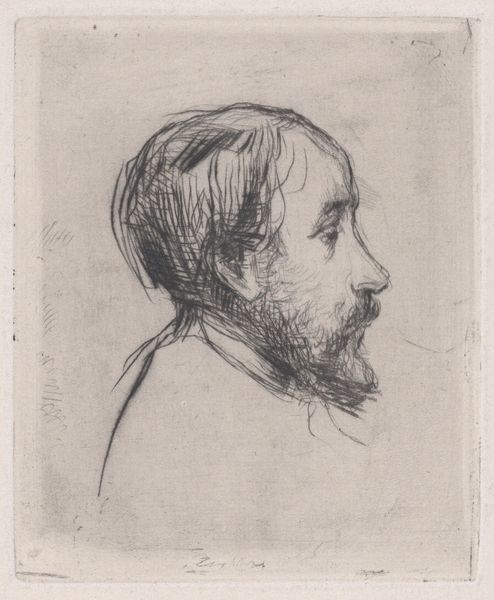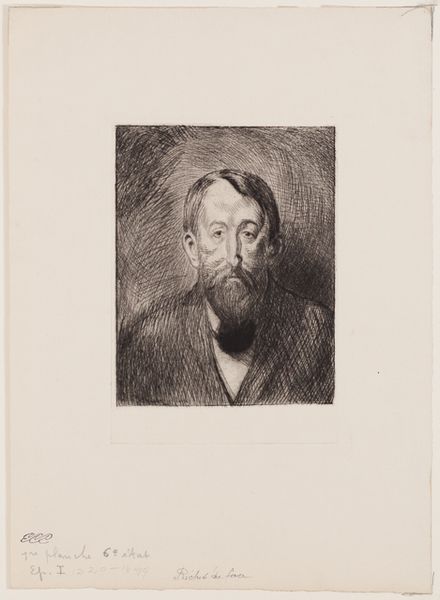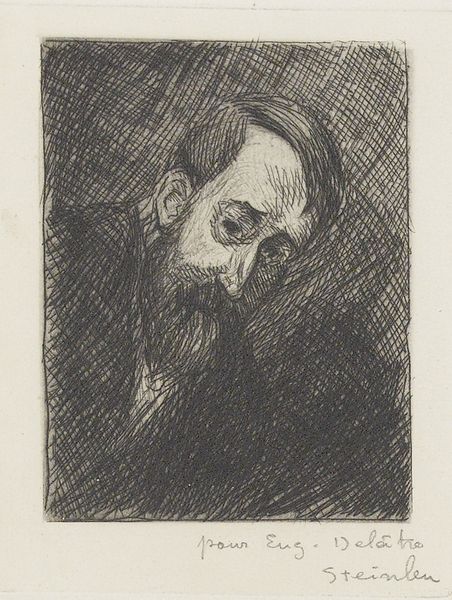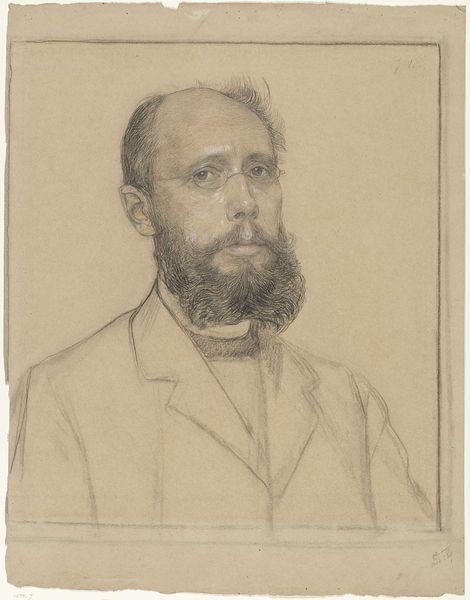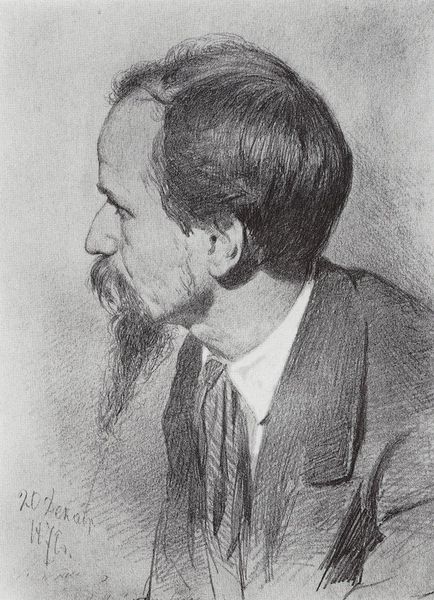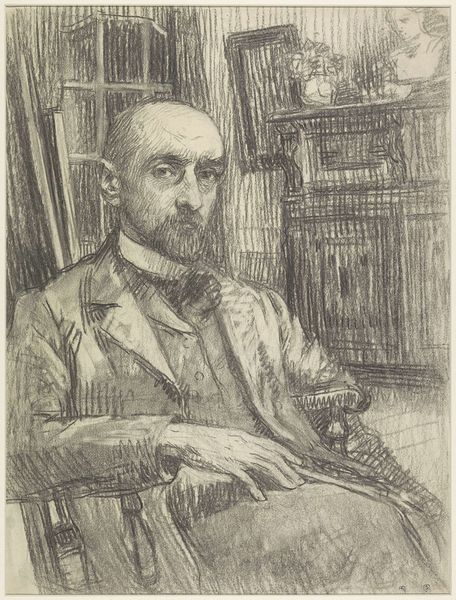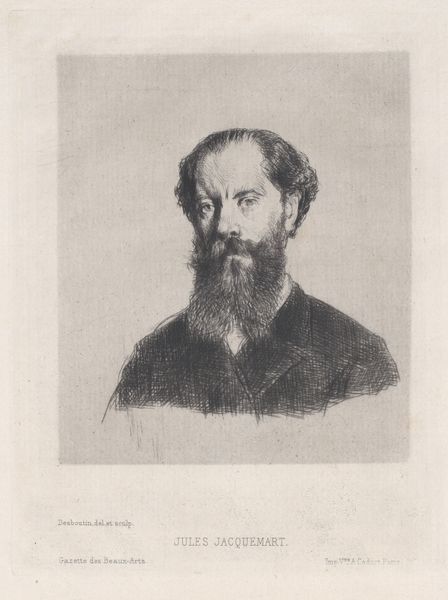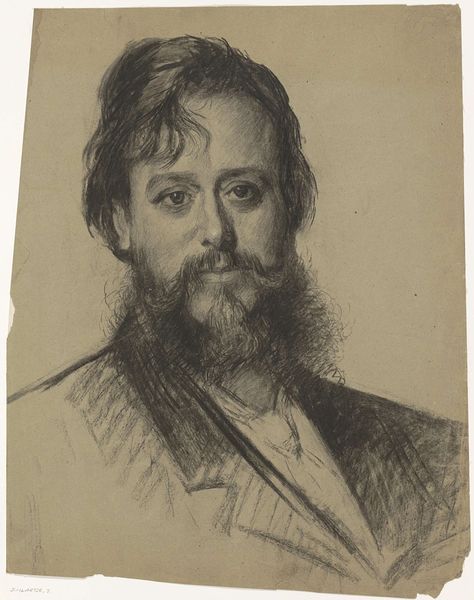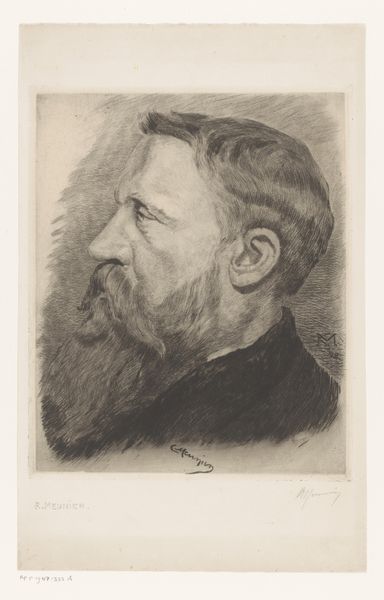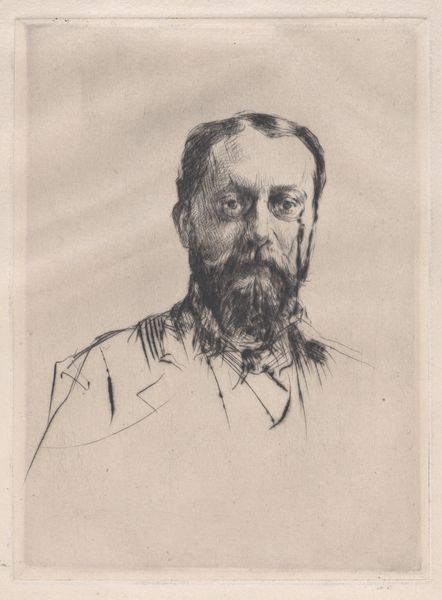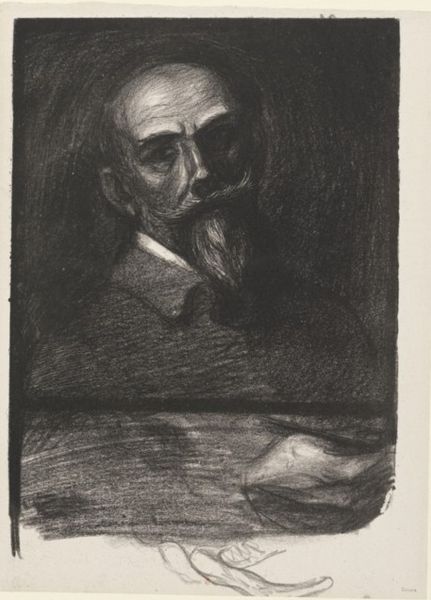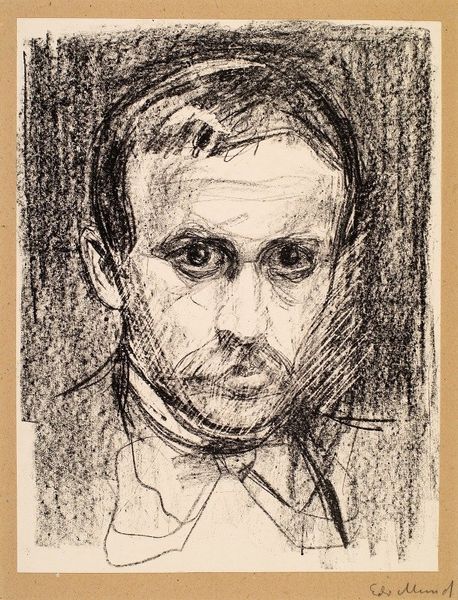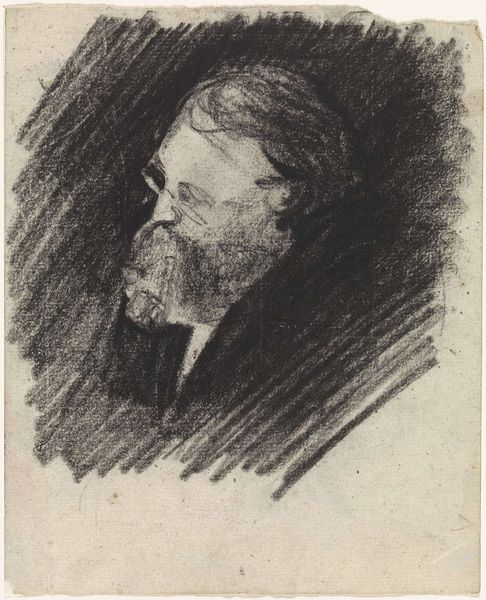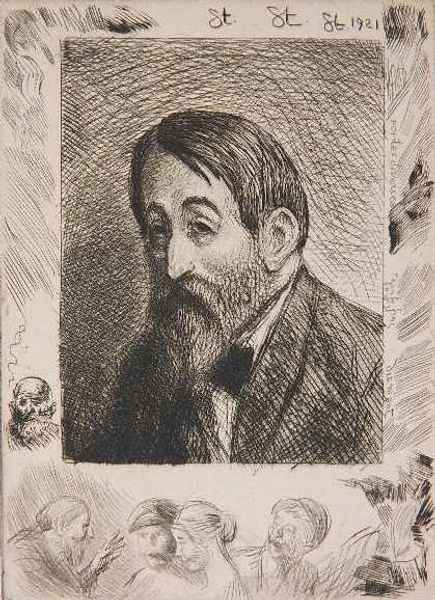
print, etching
#
portrait
# print
#
etching
#
caricature
#
old engraving style
#
caricature
#
portrait reference
#
sketch
#
symbolism
#
portrait drawing
#
realism
Copyright: Public domain
This etching of Jehan Rictus by Théophile Alexandre Steinlen in 1911 is a whole world of marks. Look closely, and you see how the hatching, the little lines, build up the shadows and the form. It’s like a language of touch, each stroke carefully placed. I find myself drawn to the way the lines gather around the eyes, suggesting depth and a kind of knowing. The texture is almost velvety, created by the density of the marks. There's a real intimacy to it, a sense of being close to the artist and the subject. It's interesting how the negative space, the areas where the paper is left untouched, becomes just as important as the inked lines. It gives the image air, lets it breathe. Steinlen reminds me a bit of Käthe Kollwitz, who used etching to explore the weight of human emotion. Both artists knew how to make black and white sing. It’s not just about what’s depicted, but how it’s depicted, that makes it so powerful.
Comments
No comments
Be the first to comment and join the conversation on the ultimate creative platform.
